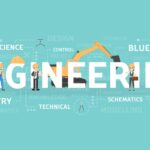Software engineering is an ever-evolving field, constantly influenced by advancements in technology and shifting market demands. As we look towards 2025, the software engineering landscape is expected to undergo significant transformations. With the rise of artificial intelligence (AI), cloud computing, and other emerging technologies, it’s essential for developers, businesses, and tech enthusiasts to stay updated on the latest trends.
Here are the top 5 software engineering trends to watch in 2025:
1. Artificial Intelligence (AI) and Machine Learning (ML) Integration
Artificial intelligence and machine learning are already shaping software development, and their impact is expected to grow exponentially in the coming years. In 2025, AI and ML will be increasingly integrated into software applications, allowing for smarter and more efficient systems. These technologies will enable software to analyze vast amounts of data, recognize patterns, and make decisions in real-time.
From self-learning algorithms to personalized recommendations, AI and ML are enhancing the user experience across industries such as healthcare, finance, e-commerce, and entertainment. For software engineers, mastering these technologies will be a key factor in staying competitive in the job market.
Additionally, AI-driven development tools will streamline the software development process by automating tasks like code generation, bug detection, and testing. This will not only speed up development but also improve the overall quality of the software.
2. Cloud-Native Applications and DevOps
Cloud computing has already revolutionized the way software is developed, deployed, and maintained. As we approach 2025, cloud-native applications will continue to dominate the software engineering landscape. These applications are designed specifically for cloud environments, leveraging microservices, containers, and orchestration tools like Kubernetes.
Cloud-native development enables faster deployment cycles, greater scalability, and improved flexibility. It allows software to seamlessly scale and adapt to changing demands, making it ideal for businesses operating in dynamic markets.
Alongside this trend, DevOps practices will continue to gain prominence. DevOps integrates development and operations teams, fostering collaboration and automating processes to increase software delivery speed and quality. In 2025, DevOps will be more automated, with tools that assist with continuous integration (CI), continuous delivery (CD), and monitoring. This means that software engineers will need to be proficient in both development and operations tasks, creating a more streamlined and efficient workflow.
3. Cybersecurity and Privacy by Design
With the increasing frequency and sophistication of cyberattacks, cybersecurity will remain a critical concern for software engineers. As data breaches and privacy concerns grow, companies will be placing more emphasis on building secure applications. By 2025, privacy by design will become the standard for software development.
This means that software engineers will need to incorporate security features from the beginning of the development lifecycle, rather than as an afterthought. Secure coding practices, encryption, and secure authentication will be integrated into applications, ensuring that they meet privacy regulations such as the General Data Protection Regulation (GDPR) and other data protection laws.
Additionally, the rise of quantum computing will introduce new challenges in encryption and security. Software engineers will need to be prepared to address these challenges by adopting new encryption methods and cybersecurity protocols.
4. Low-Code and No-Code Development
As software development becomes increasingly complex, the demand for faster development cycles and greater accessibility is on the rise. Low-code and no-code development platforms will continue to gain popularity in 2025. These platforms allow developers and non-developers alike to create applications with minimal coding knowledge.
Low-code platforms enable developers to build software using graphical user interfaces (GUIs) and pre-built components, significantly reducing development time. No-code platforms take this a step further, enabling individuals without programming experience to create fully functional applications by simply dragging and dropping elements.
For software engineers, low-code and no-code tools will be powerful aids in rapidly prototyping and developing applications. These platforms also empower businesses to address their software needs without relying on a large development team. However, they will also challenge traditional development paradigms, requiring engineers to adapt to new workflows and tools.
5. Edge Computing and IoT Integration
The Internet of Things (IoT) has already transformed various industries, from manufacturing to healthcare. In 2025, edge computing will become a key trend, further enhancing the capabilities of IoT devices. Edge computing involves processing data closer to the source (the “edge” of the network) rather than relying solely on centralized cloud servers.
By processing data locally on IoT devices or nearby edge servers, edge computing reduces latency and bandwidth usage, enabling faster decision-making. For software engineers, this means developing applications that are optimized for edge environments, ensuring that they can handle real-time data processing and support the growing number of IoT devices.
Edge computing will be particularly impactful in industries such as autonomous vehicles, smart cities, and industrial automation, where split-second decisions are crucial. Software engineers will need to design applications that can operate efficiently in distributed environments, managing data flow and processing tasks at the edge of the network.
Conclusion
As we move toward 2025, the software engineering field will continue to evolve, driven by emerging technologies and new methodologies. Artificial intelligence, cloud-native development, cybersecurity, low-code platforms, and edge computing will play pivotal roles in shaping the future of software engineering. Staying ahead of these trends and continuously adapting to new technologies will be crucial for software engineers who wish to remain relevant and succeed in an increasingly competitive industry.
Whether you’re a seasoned software engineer or just starting your career, understanding and embracing these trends will allow you to contribute to the development of innovative, high-quality applications that meet the demands of the modern world.
If you are interested in reading more blogs related to engineering, you can find blogs from all categories on our website, Engineers Heaven. Please visit our website.





